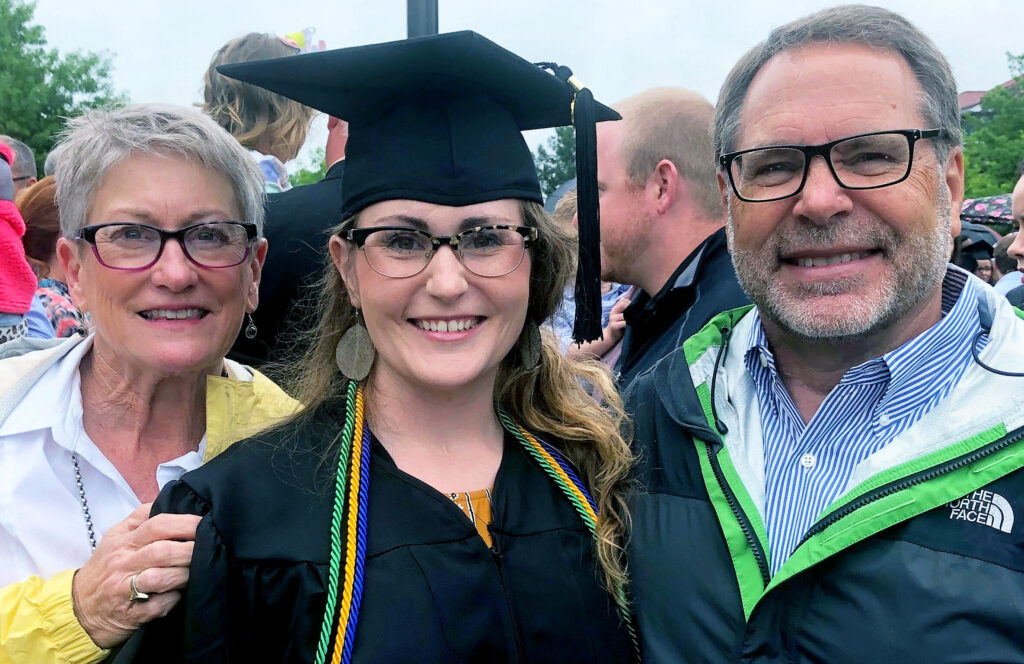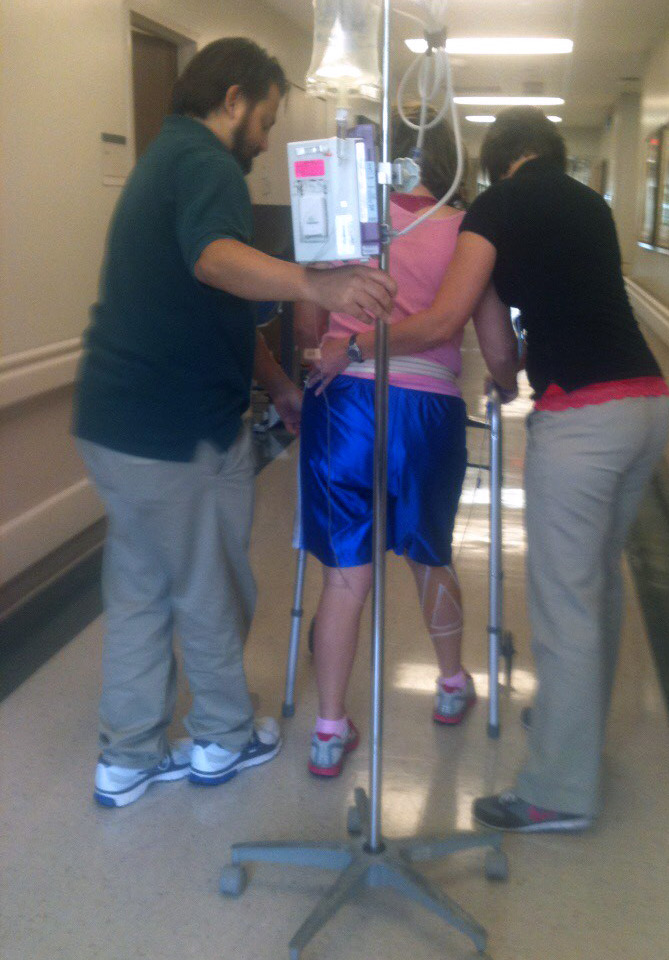Ask the Specialist: Persevere Through Adversity
By Patti Foster, Inspirational Speaker & Author

In 2002, I narrowly survived a tragic traffic accident. After 6 weeks in a coma, I had to re-learn every basic function of living: how to chew, swallow, and breathe; how to write and identify the ABCs; how to utter a sound and pronounce a word; how to add, subtract, stand, walk, and talk; how to see out of my right eye…even how to take care of myself. My life had come to a sudden, screeching halt!
I would like to share one of my life’s mottos and urge you to make it your own:
PERSEVERE THROUGH ADVERSITY.
Today, I am doing what doctors and medical teams said would never take place, which goes to show that miracles still happen! Formerly a radio personality, I now travel and speak to hundreds of survivors, caregivers, and
professionals across the country, so you might call me (like many of you already are) a “survivor specialist”.
Please dive in to these life strategies I’ve learned that can help brain injury survivors thrive on a long-term basis:
- When a survivor pauses or forgets a word, please try not to step on the silence. Instead, remain quiet and allow them time to think.
- Give survivors a HINT, not the answer.
- Remember that most survivors have their best time in the morning. So, make sure to include this insight into plans and schedules.
- Find out what survivors’ joys and strengths were before the injury, i.e. broadcasting, singing, playing sports, painting, etc. Then, try to think out-of-the-box and make adjustments that might give them purpose in developing their journey of recovery.
- Journal…journal…journal.
- Encourage survivors to write their story and tell their story in a magazine article, blog, chapter of a book, on social media, or in a full book that can help others along the brain injury journey.
- Join a local or online support group and treat it like a family.
- Keep sticky notes handy. They’re a userfriendly, short-term memory supplement.
- Visit a fabulous site that serves you: www.HopeAfterBrainInjury.org
- Email me anytime (but please give me extra time to reply): info@pattifoster.com
The time is now, and the opportunity is at hand. Watch for those moments to PERSEVERE THROUGH ADVERSITY and help others thrive!
Want to suggest a topic? Email us at braininjury@uams.edu.
Stories from the TBI Community: My Journey with Traumatic Brain Injury
By Kerrie Snyder, as Told to Kimberly Lamb
I was 8 years post injury, and got to share my story with patients who were only one week out. I was able to give them hope and light.
Kerrie Snyder

On June 25, 2011, my life changed forever. I went to a party near Wye Mountain in Perry County with my co-worker, Chelsie. On the way home, my car went off the road and over the side of the mountain.
Chelsie and her cousin, who were driving a few minutes behind me, spotted headlights shining up from the side of the mountain. Without realizing that it was me in the accident, they called 911.
I was unresponsive when the rescue team arrived. The paramedics intubated me and cut me out of the car. I was flown by helicopter to Baptist Health in Little Rock. Chelsie found my parent’s home phone number, and they were waiting at the hospital. I arrived unconscious, with a Glasgow Coma Scale rating of 3, which is the lowest possible score.
Tests showed that I had no alcohol in my system. My parents thought that I looked fine, but the doctors told them that my brain had been severely damaged, and that I probably wouldn’t live longer than 24 hours. While I have no memory of my time at Baptist Health in Little Rock, I survived.
I was in a coma at Baptist Health for almost two months. For the first week and a half, I remained mostly unresponsive, except for some movement on my left side. I began some therapies, but I was unable to do anything for myself. I was still connected to oxygen through my tracheotomy, and I was fed by a nasal tube and later by a stomach tube. Also, because of an upper neck fracture, I wore a neck brace.
On July 19, my 20th birthday, I was taken by ambulance from Little Rock to Baylor Scott & White Institution for Rehabilitation, in Dallas, Texas, where I stayed for a couple of months.
At Baylor, I became more alert. I responded when someone spoke to me, but I didn’t initiate any conversation. My family, doctors, and therapists thought that I would stay in this current state.
After an MRI on August 21, I “woke up” while being transferred on a gurney back to my room. My mom was with me, and I asked where I was. I began to ask many other questions. My mom explained that I had been in a partial comatose state for the previous months. She told me that my family and friends had been praying for me. The walls of my room were covered in pictures and notes.
Once I was fully awake, I learned more about my injuries. I learned that I had a severe traumatic brain injury or TBI. My dad is a scientific researcher, and he did a lot of research on brain injury while I was in the coma. He was able to explain a lot to me about brain injury and what was happening to me.
In addition to the TBI, I suffered a fracture in my upper neck. I was still in a wheelchair and could barely speak clearly. I still could not stand up, sit up, feed myself, or do any of the basic necessities of life on my own.

On September 15, I was taken to a restorative care location in Irving, Texas. After a few months in Dallas/Irving, I came home on December 13. I continued with outpatient therapies through Baptist Health in Conway for another few months. I also attended speech therapy sessions at the University of Central Arkansas to work on attention, memory, and clarity of speech. I continue to do the exercises that I learned in my OT and PT therapies so that I do not regress.
In the fall semester of 2012, I decided to go back to school. I started with one class at the University of Arkansas Community College at Morrilton (UACCM), then decided to attend a nine-month program to become a medical assistant (MA). After becoming a certified MA, I worked for a year and a half, then moved to Russellville in 2016 to begin classes at Arkansas Tech. While in Russellville, I lived on my own and worked a part-time front desk job at the apartment complex where I lived.
In the spring of 2019, I did a one-semester internship at Baptist Health Rehabilitation Institute in Little Rock (BHRI). I had the privilege of interning under two Certified Therapeutic Recreation Specialists (CTRS). This experience was great for me in many ways, and reminded me of just how far I have come.
Since I was in a coma and do not remember anything about my accident or those first months afterward, I only knew what I was retold about my recovery process. At BHRI, I was able to witness that process firsthand as other patients were going through it.
I feel like I’m supposed to help others who are struggling like I struggled. Because I have been through so much that they are going through, I could relate to the patients and had a better understanding of how they felt. I’ve been in a wheelchair, used a walker and a cane, worn a catheter, and still proudly wear my tracheotomy scars. I was eight years post injury, and got to share my story with patients who were only one week out. I was able to give them hope and light, and I believe this is one of the reasons I’m doing so well.

I graduated from Arkansas Tech this past May with a Bachelor of Science in Recreation and Park Administration with an emphasis in Therapeutic Recreation. I am currently looking for work that uses my new skills and knowledge.
Today, I still have some struggles. I have a condition called intentional cerebral ataxia, which is caused by deep damage to my cerebellum. It causes me to shake constantly, especially when I intend to do something with my left arm. The doctors assumed that I was paralyzed on the right side, but thanks to the ataxia, I started using my right limbs once again. Despite these struggles, I am well enough to live on my own and perfom my activities of daily living.
My Christian faith grew during my recovery. I realized that if I wanted to get better, I had to give it all to God. A Bible verse stuck out to me: “We live by faith, not by sight.” (2 Corinthians 5:7).
The surgeons told my parents that I “might walk, might talk…” but that I would “never be Kerrie.” But guess what? I’m still very much myself, and in many ways, I’m an even better me than I used to be, and I have God to thank.
My Recovery Tips:
- Read
- Exercise
- Play brain games, such as word searches, puzzles, Sudoku, and Words with Friends
- Don’t limit yourself!
Want to share your story? Email us at braininjury@uams.edu.
Social Security Disability Pointers: Beware of People Pretending to be From Social Security
By Phylis Dills, Social Security Public Affairs Specialist
Social Security is committed to protecting your personal information. We urge you to always be cautious and to avoid giving sensitive information —such as your Social Security number (SSN) or bank account information— to unknown people over the phone or internet.
There is a scam going around right now. You might receive a call from someone claiming to be from Social Security or another agency. Calls can even display 1-800-772-1213 (Social Security’s national customer service number) as the incoming number on your caller ID. In some cases, the caller states that Social Security does not have all of your personal information, such as your SSN, on file. Other callers claim Social Security needs information so the agency can increase your benefit payment, or that Social Security will terminate your benefits if they do not confirm your information. These calls are not from Social
Security.
Callers sometimes state that your SSN is at risk of being deactivated or deleted. The caller then asks you to call a phone number to resolve the issue. People should be aware that the scheme’s details may vary; however, you should avoid engaging with the caller or calling the number provided, as the caller might try to acquire personal information.
Social Security employees occasionally contact people by telephone for customer-service purposes. In only a very few special situations, such as when you have a case pending with our agency, will a Social Security employee request that the person confirm personal information over the phone.
If you receive a Social Security call and aren’t expecting one, you must be extra careful. You can always get the caller’s information, hang up, and contact the official phone number of the business or agency that the caller claims to represent. Never give personal data to a stranger who called you, even if the phone number looks real.
Social Security employees will never threaten you or promise a Social Security benefit approval or increase in exchange for information. In those cases, the call is fraudulent, and you should just hang up. If you receive these calls, please report the information to the Office of the Inspector General at 1-800-269-0271 or online at oig.ssa.gov/report.
You can also share our new “SSA Phone Scam Alert” video at http://bit.ly/2VKJ8SG
Protecting your information is an important part of Social Security’s mission. You work hard and make a conscious effort to save and plan for retirement. Scammers try to stay a step ahead of us, but with an informed public and your help, we can stop these criminals before they cause serious financial damage.
Please be aware that past newsletter issues may contain outdated information. For the latest updates on resources and events, visit our website or contact us at braininjury@uams.edu with any questions.
